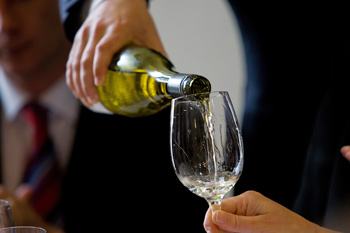NOffLA Speaks: Reverse excise – Create jobs

NOffLA outlines how a 62% excise increase on wine over the last two budgets has hurt Irish wine SMEs
16 September 2014
The 62% increase in excise duty on wine over the last two budgets has cost jobs. Reversing this increase will create jobs. Irish wine SMEs are facing an unsustainable situation. The tax hike of 62%, or €1.50 on the average bottle of wine, has meant that wine has been the hardest hit alcohol category in the last few years.
Michael Foley, chairman of the Irish Wine Association explains the stark reality of government action: “Over 1,100 people are employed directly by Irish wine distributors and importers, and thousands more jobs are supported in the 13,000 pubs, restaurants, and independent off-licences that sell wine – their livelihoods are now at risk due to the actions of the government. Such unfair treatment of wine is crippling small businesses across the country.” According to AC Nielsen data to end of Dec 2013, volumes in the industry are down 8.6%.
Excise is a tax on jobs
Michael Foley points to the combined impact of the excise increases: “Increases have added almost €18,000 to the cost of importing 1,000 cases of wine, at a time when the availability of credit is at an all-time low. This has put jobs at risk and has made it impossible to scale up and take on new talent.”
Excise stunts SME growth
There has been huge growth in the presence of multinational retailers in Irish towns and cities. While these retailers provide jobs, they have no commitment to the communities in which they trade – or to the country. The Irish Wine Association chairman is clear about the contradiction in government policy for SME growth: “The government has said again and again that it wants to encourage entrepreneurs to set up shop in this country, yet excise increases have created significant cash-flow issues for distributors and importers as many have to pay excise as an up-front cost. This also makes it impossible for new wine importers and suppliers to enter the market.”
Excise makes tourism uncompetitive
Irish tourism is one of the country’s key industries. Government policy and strategic planning for tourism is completely undermined by government policy on excise duty. Spanish tourists pay almost twice the price for wine in Irish restaurants that they do at home. Fáilte Ireland research has shown that the price of alcohol is one of the main reasons why tourists wouldn’t return to this country.
Supermarket competition
Michael Foley is unequivocal about the impact of the disproportionate tax take from the sale of wine in Ireland: “Independent off-licences struggle to stay afloat in the competitive market, as it’s nearly impossible to compete with supermarkets selling wine as a loss leader. It’s shocking how much of the price of your drink goes to the government. Take a €7 bottle of wine – 64% or €4.50 goes straight to the government. Wine that is priced greater than €9 has increased from 20% to 46% between 2012 and 2013.”



 Print
Print




Fans 0
Followers